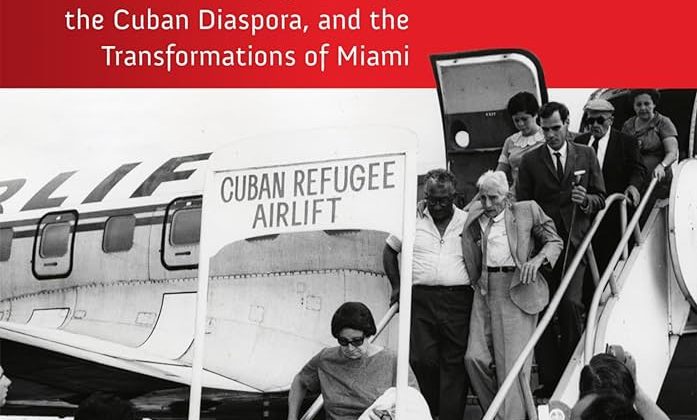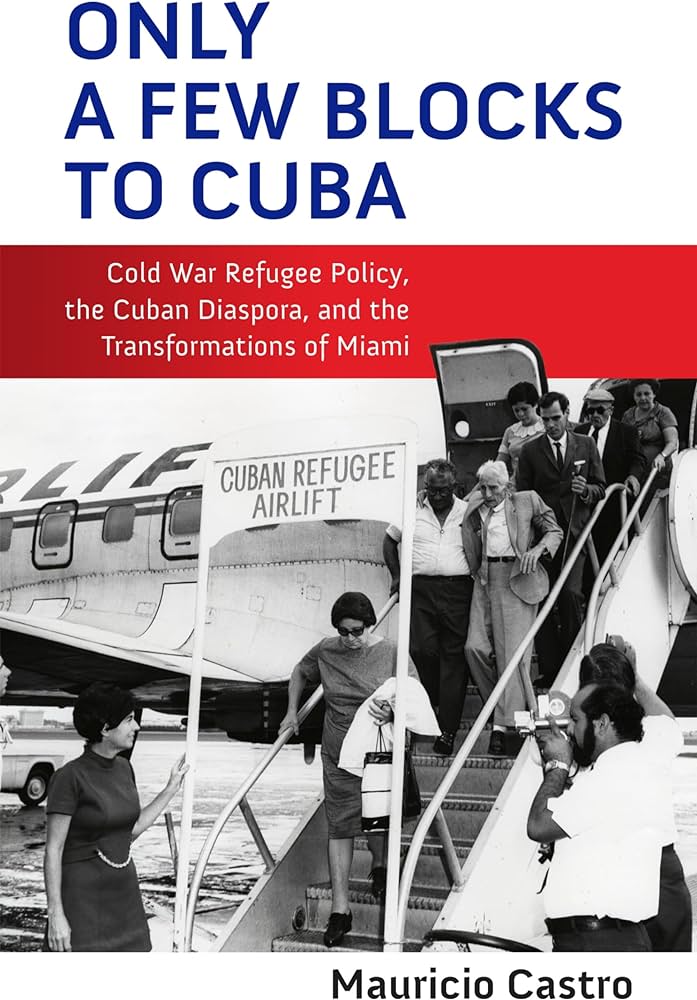

Mauricio Castro is Assistant Professor of History and Chair of Latin American Studies at Centre College. This interview is based on his new book, Only a Few Blocks to Cuba: Cold War Refugee Policy, the Cuban Diaspora, and the Transformation of Miami (University of Pennsylvania Press, 2024).
JF: What led you to write Only a Few Blocks to Cuba?
MC: I am originally from Costa Rica and like many Latin Americans, Miami was the first place I visited in the United States. Even as a child, the melding of cultures of the city was always fascinating. When I made a change in my focus in graduate school and I was seeking a dissertation topic, my good friend Timothy Lombardo mentioned Miami and this reawakened my old interest. Ultimately, it led to my entry into Miami and Cuban American studies and, in time, to this book.
JF: In 2 sentences, what is the argument of Only a Few Blocks to Cuba?
MC: Only a Few Blocks to Cuba argues that rather than being an outlier, Miami and the Cuban diaspora are simply the most salient examples of the impact of Cold War policy decisions and funding affecting an area of the United States. The multiple transformations that the city has experienced since 1959 spring from the unforeseen consequences of policy decisions made in the very early years of the Cuban exile and not only affected the city but national politics as well.
JF: Why do we need to read Only a Few Blocks to Cuba?
MC: Aside from the implications to the relationship between local development and foreign policy that I already mentioned, this book is significant in terms of understanding American politics. The intersection of Florida, Miami, and Latino politics seems to produce a significant amount of befuddlement or resignation in politicians and analysts every four years. This book, particularly in an election year, will help readers understand the contingent processes by which a Democratic stronghold changed so significantly, affecting the electoral math for the state of Florida, and by extension for the United States. Similarly, this book helps to challenge the conception of the history of American cities as a racial binary, by recounting the history of the city and the interactions of multiple groups, including Cubans/Cuban Americans, African Americans, and native-born white Americans. This history shows dynamics that will surprise readers and can challenge their understanding of American cities.
JF: Why and when did you become an American historian?
MC: After my first year of college, I made the decision to become a history major. I wanted to become an academic historian. I felt a significant draw to European history, but my interest in the Cold War and my command of both English and Spanish eventually led me to a concentration in American history and the interactions of the United States and Latin America.
JF: What is your next project?
MC: I have, in the past few years, developed an interest in economic history. I am in the early stages of a new project that builds on the work I already did in Only a Few Blocks to Cuba, on Latino banking in various forms and its relationship to class, identity, and assimilation. I hope to build out from my work on Cuban bankers in Miami into some additional case studies involving other geographical areas and Latino groups.
JF: Thanks, Mauricio!